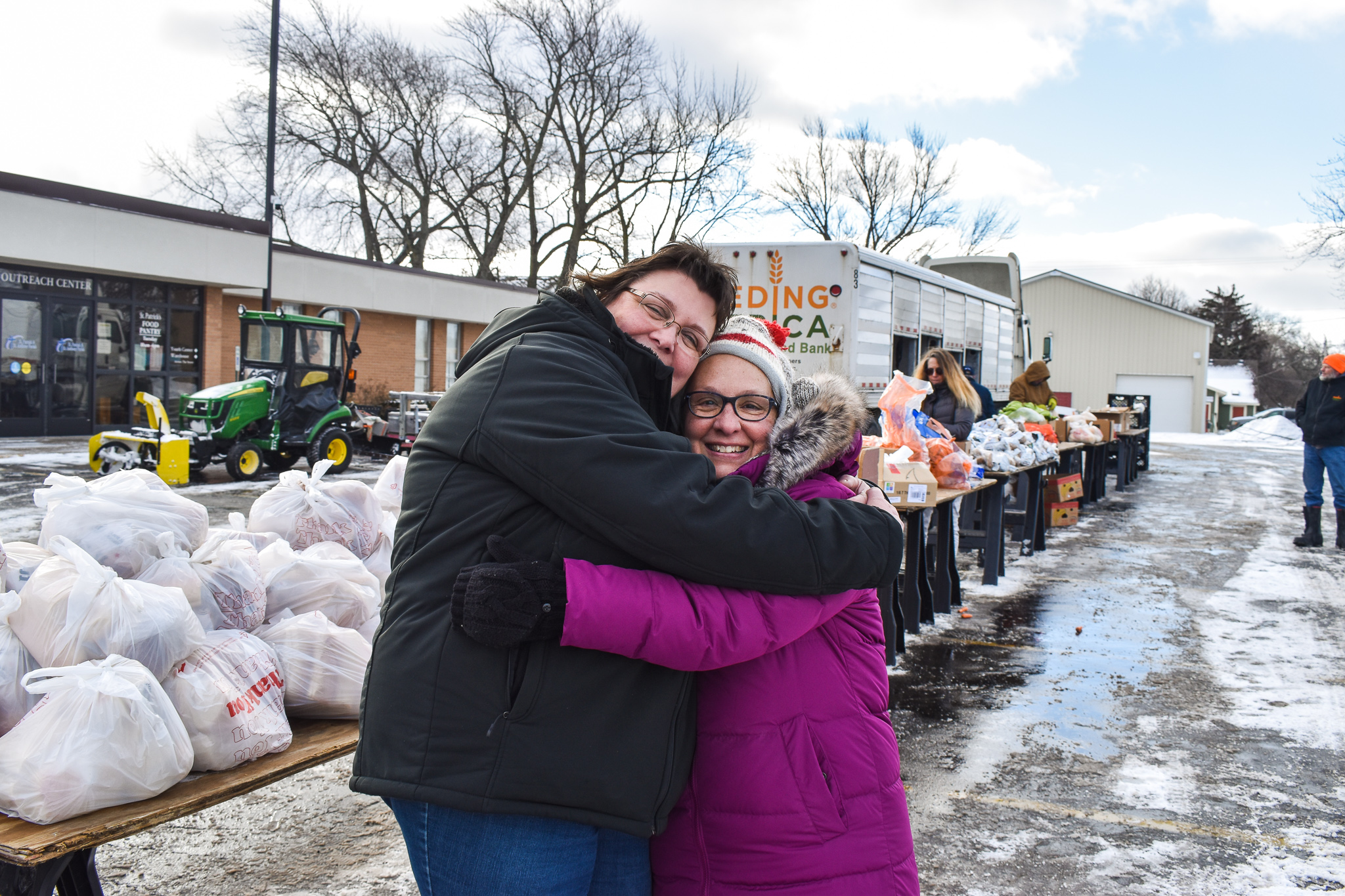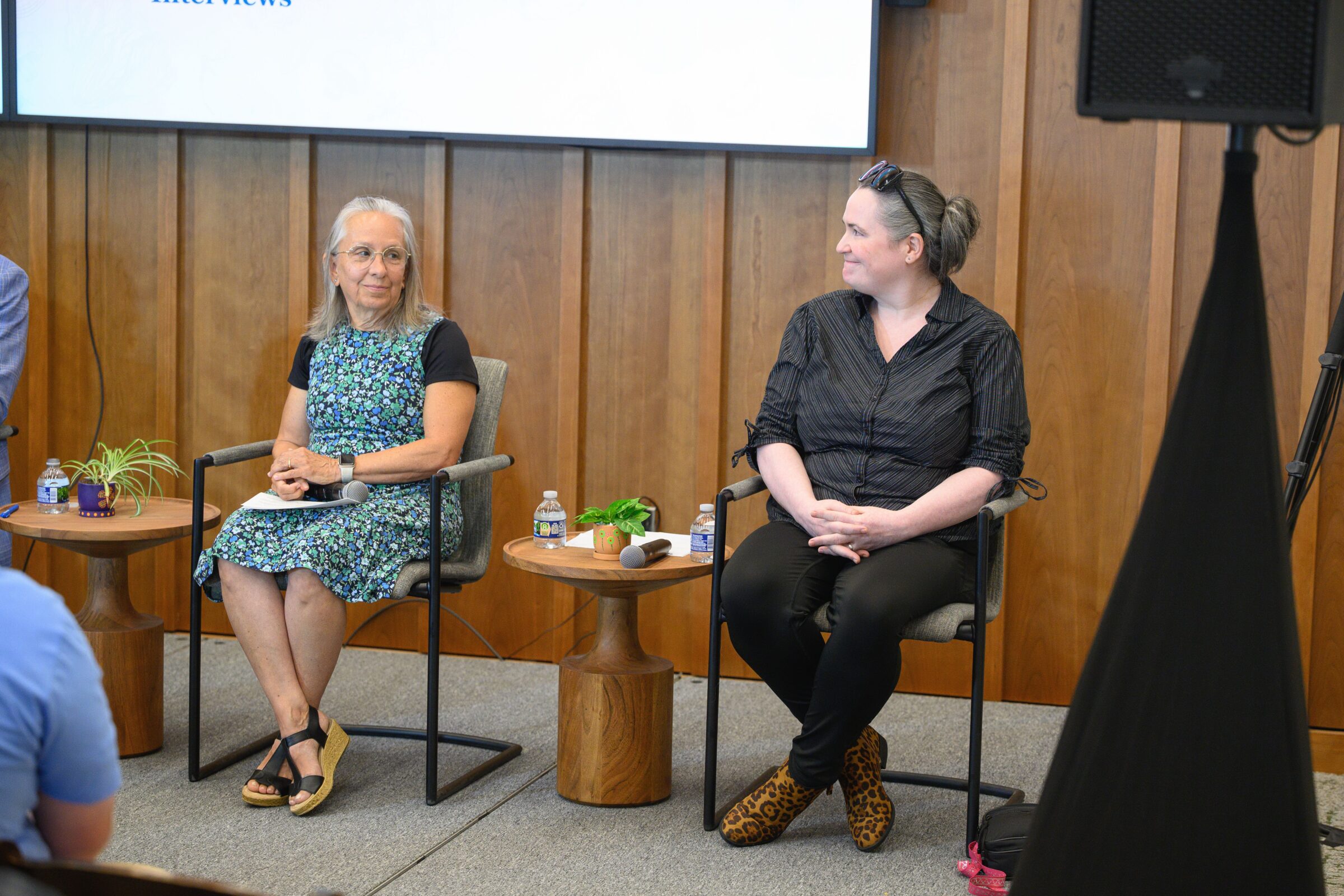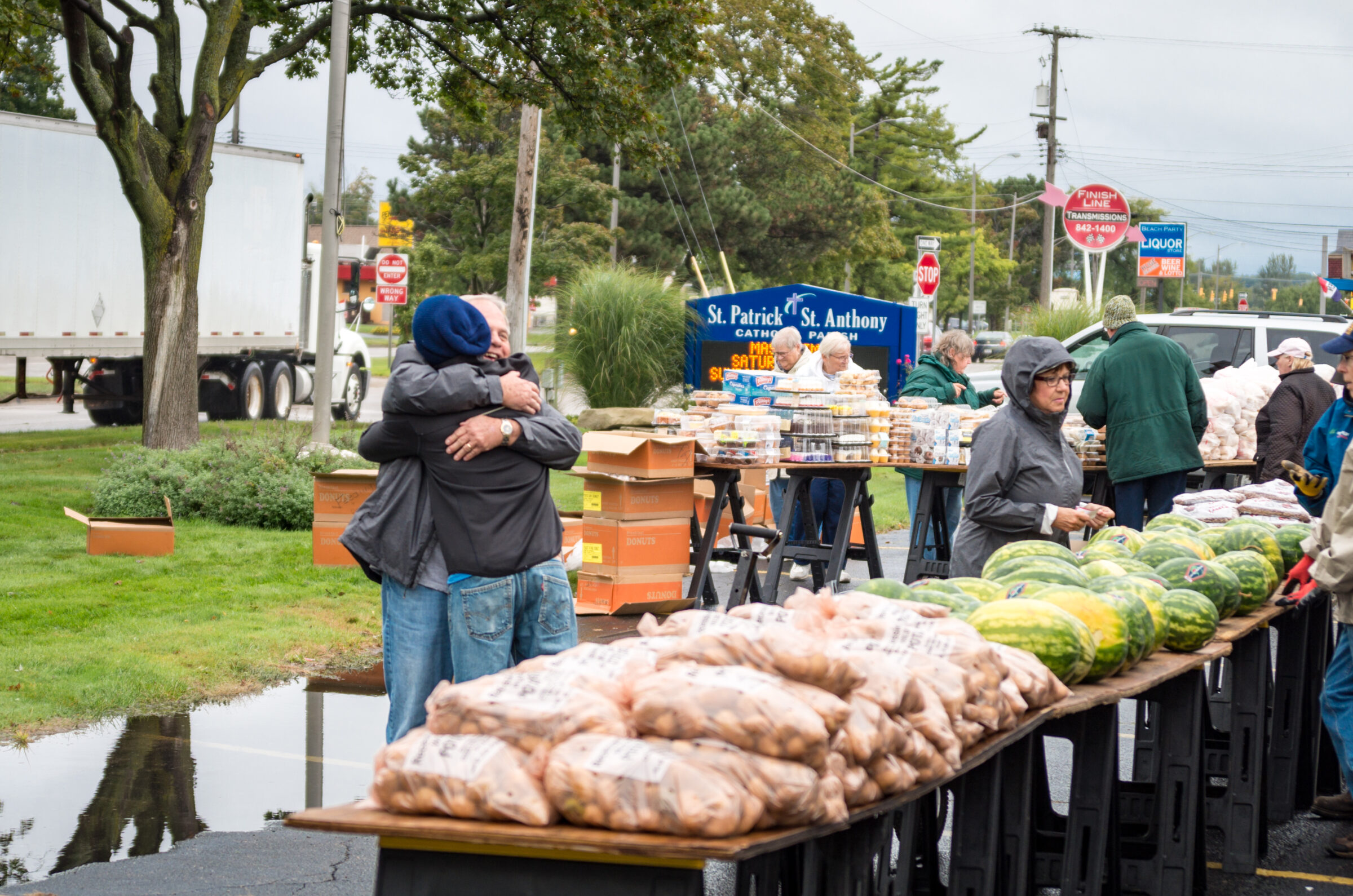
Agencies provide life-changing nutrition and renewed hope
Feeding America West Michigan provides food to thousands of families in West Michigan and the Upper Peninsula, yet we rarely meet the people we serve.
Nearly 800 agency partners throughout our 40-county service area are the link between our food bank and neighbors’ dinner tables. Often, the connection between agencies and families does much more than provide food. It provides a spark that ignites hope and a sense of dignity in our neighbors who are experiencing food insecurity.
One such agency is Love in Action in Grand Haven. Besides hosting a fixed pantry and mobile food pantries, the agency runs a food co-op, cooking classes, a community garden, medical and dental clinics, housing for homeless women and children, financial fitness classes, and more.
Amanda, a mother in Grand Haven, turned to Love in Action when she needed food for her family of growing adolescents.
“It is very difficult for us to get adequate protein in our diets, and protein is very important to my sons because they are both athletes in multiple sports,” she said. “My daughter is mildly disabled. Her ability to receive proper nutrition is super important as we prepare her toward the independent, self-reliant future I believe she is capable of.”
While seeking food for her family, Amanda met Cheryl Youngquist, Love in Action’s director of operations. Cheryl encouraged Amanda to take a cooking class so she could learn how to make the fresh produce she received at mobile food distributions. After the cooking classes, Amanda went home and began to cook with her children as they learned together. They now cherish their time together in the kitchen. Amanda also saw a transformation in herself, shifting from shame to confidence when she began to volunteer at Love in Action.
Over time, the benefits of good nutrition have continued to accumulate for her family.
“Because of the type of food that Feeding America provides, the improvements to our physical health have been tremendous and beyond what I thought we’d be capable of,” Amanda said. “I take less medication than I have in 15 years. My husband, who is older than me, takes zero medication … We are more productive and active at work, at home, and in our community. We have a sense of restored hope where we have been able to take back our dignity and our belief in what we are capable of.”
Over time, Amanda and Cheryl became friends, shifting the dynamic from helper and helped to equals with a mutually supportive bond. Amanda continues to teach Cheryl about the daily choices that come with a tight family budget. Cheryl continues to show Amanda that their community cares about her family and wants them to thrive. Cheryl also continues to present opportunities to Amanda. With each opportunity, Amanda develops more confidence. She recently had the confidence to speak about her experiences on a panel at Feeding America West Michigan.

“What I have to say is important,” she said after the event, adding that she was glad she agreed to speak.
Growing needs create challenges for local agencies
Cheryl knows there are dozens of families like Amanda’s in the Grand Haven area who may be struggling in silence and isolation. Recently, a higher number of people have turned to Love in Action for assistance. Because of the increased demand, Cheryl worries that her agency will only meet the basic needs. Agencies like hers will struggle to get to know the people who turn to them — yet taking time to get to know them is often the most important service they can provide.

“We are struggling at this time to be proactive rather than reactive,” Cheryl said. “We are not having as much time to hear and truly help them. We are providing clothing and food, but we aren’t able to hear their stories and learn from each other and come up with solutions together.”
People who are struggling to meet basic needs often don’t realize how isolated and lonely they are until someone like Cheryl extends a helping hand and a listening ear. Cheryl said connection to community can be as life changing as nutritious food. People need to know that the community is there, ready to help.
“Our community has been incredibly supportive,” Cheryl said. “If we look at what we have and share what we can, we will get through this. We just need to keep working together.”
